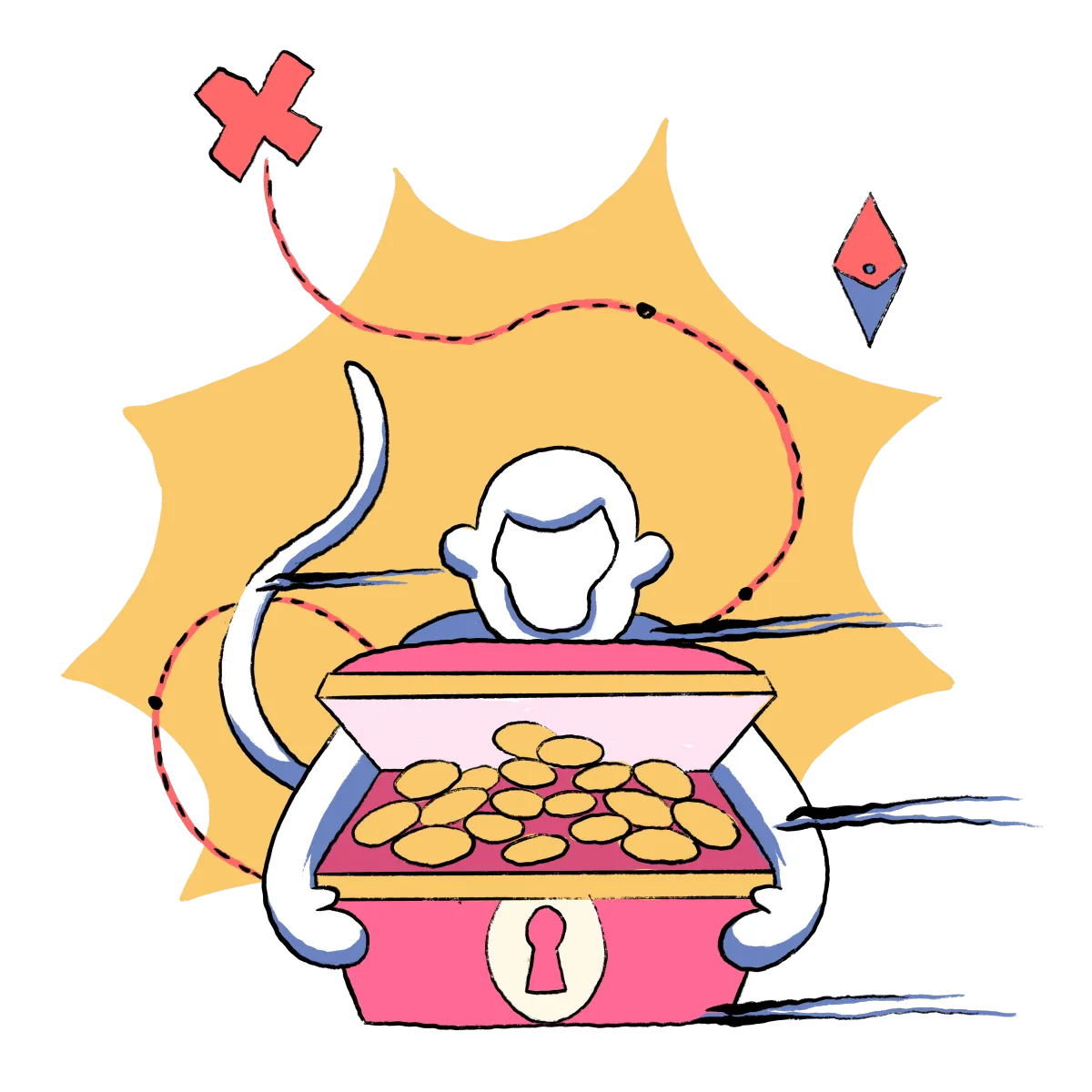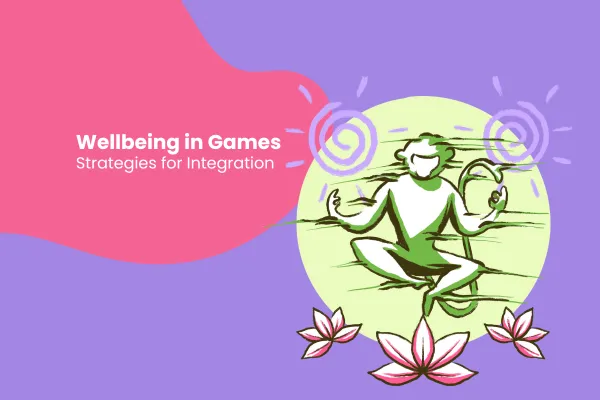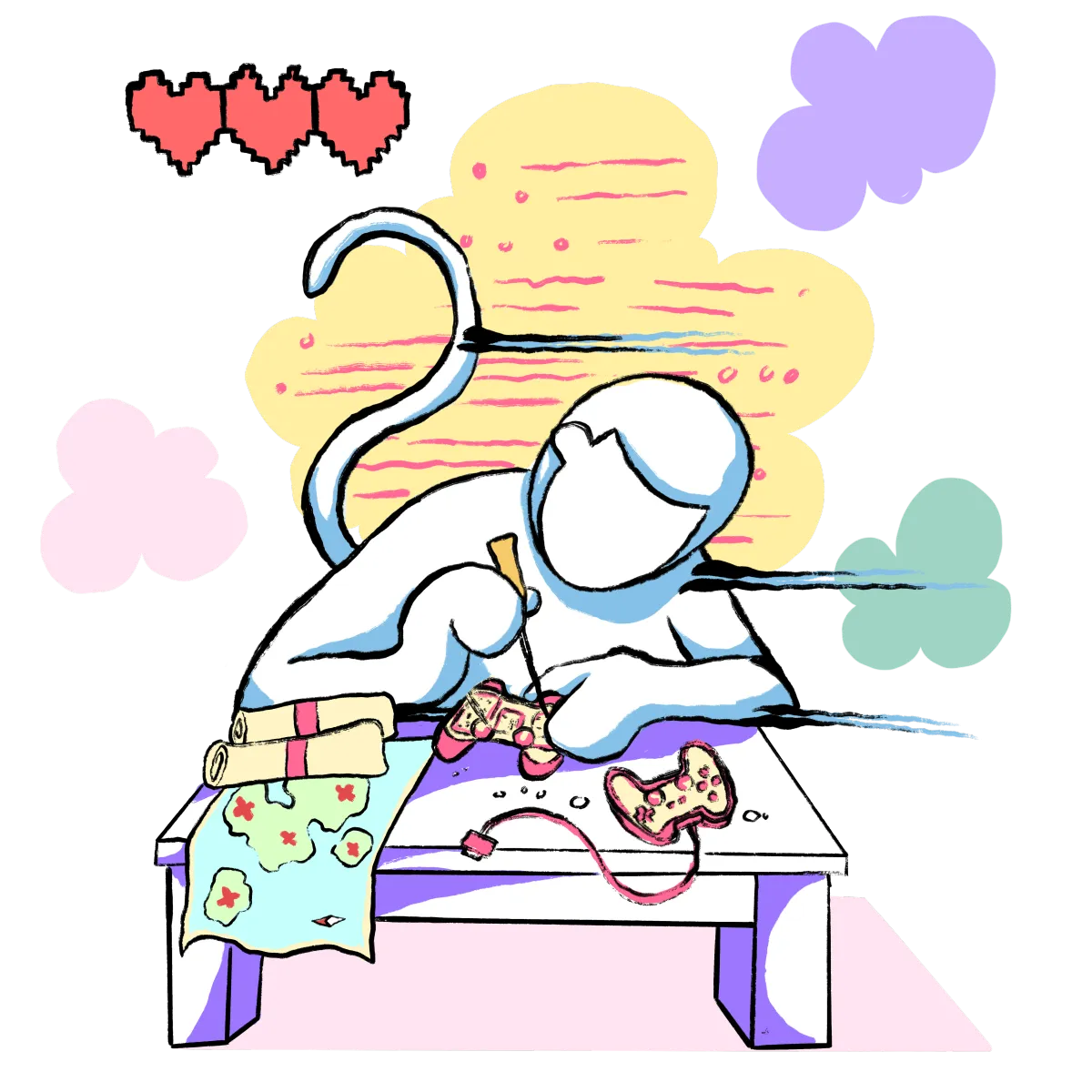Welcome to the Treasure Chest
We have hidden Golden Nuggets and secret Potions below find your relevant category and explore.


For Individuals
The section for Individual Developers and Executives or Leaders

Games and Wellbeing
Gaming’s skyrocketed to a prime spot in our digital world, mixing fun with online gatherings. But let’s face it, too much of a good thing can tip the scales towards burnout and impact our mental health. This article zeroes in on the fusion of gaming and wellness, slicing through distractions to spotlight a crucial balance. Exploring how game creators are enhancing their wellness initiatives, this section sheds light on the efforts to support both the developers and the gaming community.
We also dive into regulatory considerations aiming at safer gaming practices globally. Plus, there’s a fresh take on achieving balance through an integrative living model tailored for gamers. From practical tips for balanced gameplay to game design that prioritizes wellness, we’ve got you covered.
In conclusion, we delve into the strength of camaraderie in nurturing positive spaces and peer forward to upcoming innovations poised to transform the well-being landscape within gaming. Hang tight; this guide is brimming with hands-on suggestions aimed at elevating your playtime in a mindful manner.
Table of Contents:
The Impact of Gaming on Mental Health
Understanding Gamer Burnout
Gamer burnout is like hitting a wall with your favorite character in an endless runner game, but instead of getting up, you just can’t find the energy to play anymore. Symptoms include feeling tired all the time, losing interest in games that once brought joy, and even experiencing physical discomfort from too much screen time. The main culprits? Long gaming sessions without breaks, high levels of competition stress, and sacrificing sleep for one more level.
To keep gamer burnout at bay, balance is key. Mixing up your gaming routine with physical activity or other hobbies helps prevent fatigue. Also important is setting healthy boundaries around how long and when you play—your body will thank you.
Positive Psychological Effects of Gaming
Diving into digital realms not only hones your mental acuity but also elevates your emotional health, offering a surprising twist to the narrative of gaming. Research has revealed that engaging in specific video games can enhance mental capabilities, including the knack for solving puzzles, understanding spatial relationships, and juggling multiple tasks at once.
Beyond honing mental faculties, gaming also offers emotional benefits by providing escapism from everyday stresses and fostering social connections through multiplayer experiences as discussed here. This combination makes gaming a powerful tool for improving overall mental health when done in moderation.
Wellness Initiatives in Gaming Studios
Case Studies of Successful Wellness Programs
In recent years, a few forward-thinking gaming studios have stepped up their game by integrating wellness programs not just for players but also for their developers. One shining example includes incorporating flexible work hours to reduce burnout risks while another studio introduced meditation spaces within its office premises. By prioritising employee well-being, these initiatives have led to happier teams which translate into better quality games—a win-win situation if there ever was one. These real-world applications demonstrate the positive impact such programs can have within the competitive industry environment.
Key Takeaway:
Balance your gaming with physical activities and set healthy playtime limits to dodge gamer burnout. Surprisingly, games can sharpen your mind and boost emotional wellness when played in moderation. Meanwhile, gaming studios are leveling up by introducing wellness programs for developers, leading to happier teams and better games.
Wellness Initiatives in Gaming Studios
Case Studies of Successful Wellness Programs
Gaming studios are catching on to something big: happy developers create better games. But it’s not just about the end product; it’s about cultivating an environment where creativity flows like Mountain Dew during a marathon coding session. Take, for example, Supercell, known for hits like “Clash of Clans.” They’ve implemented flexible work schedules and dedicated team-building retreats that have led to remarkable employee satisfaction rates.
Then there’s Riot Games, stepping up their game with comprehensive health benefits that cover mental health services—a nod to the stressors unique to game development. Their approach underscores a vital truth: when you treat your devs right, they don’t just stick around; they thrive.
Smaller indie game developers are riding the wave too, crafting wellness programs specifically designed for their more intimate teams. Look at Motion Twin, the cooperative behind “Dead Cells,” who champion an equal profit-sharing model among all employees. By openly sharing everything, everyone feels like they’re truly part of the team and deeply invested in looking out for one another’s health.
Incorporating wellness into gaming studios isn’t merely a trend—it’s becoming as crucial as QA testing before launch day. A recent Gamasutra article emphasises how industry attitudes toward mental health have shifted dramatically over the last decade.
To wrap our heads around this shift think about this analogy—if game development were akin to assembling an intricate puzzle then ensuring each piece (or developer) is in peak condition makes fitting them together much smoother.
So why do these programs matter? Because beyond keeping burnout at bay and fostering innovation through diversity of thought let us not forget one simple yet profound reality: developers are gamers too. Thus creating healthier workplaces could very well reflect back on the gaming community promoting overall wellbeing amongst players.
Regulatory Considerations in the Gaming Industry
Global Perspectives on Gaming Regulation
Gaming is a global juggernaut, but it’s not just fun and games when it comes to regulation. Nations worldwide are now earnestly evaluating the psychological effects of gaming and are initiating measures to promote ethical standards in the sector. It’s like each country is playing its own version of regulatory Tetris, trying to fit policies that protect gamers without stifling innovation.
In South Korea, for example, they’ve implemented what’s known as the “Shutdown Law” or Cinderella Law which prohibits gamers under 16 from accessing online games between midnight and 6 AM.
Meanwhile, Japan has focused more on content regulation by establishing ratings systems similar to movie ratings in the US through CERO (Computer Entertainment Rating Organization).
The European Union takes a broader stroke with GDPR (General Data Protection Regulation), impacting how game companies collect data across Europe—because even your virtual avatar needs some privacy. The U.S., however, leans heavily on self-regulation with organizations like ESRB (Entertainment Software Rating Board) providing rating guidelines though there’s ongoing debate about federal oversight concerning loot boxes and gambling-like mechanisms.
The Impact of Regulations on Game Development
You might think regulations would throw a wrench in creative gears—but sometimes they force innovation out of necessity. Developers now often include settings that let players manage playtime or mute communication with others as a nod towards promoting healthier gaming habits directly influenced by these global regulations.
This push for accountability doesn’t just fall onto developers; platforms like Steam have introduced features allowing users more control over their gaming experience such as Family View or limiting screen time for younger users—a proactive step likely inspired by seeing where winds are blowing globally regarding digital wellbeing initiatives.
Key Takeaway:
Gaming regulation varies worldwide, aiming to protect players while fostering innovation. Countries like South Korea and Japan enforce specific laws, whereas the EU focuses on data privacy and the US on self-regulation. These regulations inspire developers to create features promoting healthier gaming habits.
The Integrative Living Model for Gamers
Gaming transcends mere relaxation, evolving into a gateway for enriching life beyond the screen. Exploring the equilibrium where enjoyment intertwines with utility, your lounge transforms into a foundation for cultivating essential life competencies. The Integrative Living Model taps into this potential, offering gamers a roadmap to balance their passion with physical health, mental well-being, and environmental consciousness.
Practical Tips for Balanced Gaming
To make the most of your gaming time without falling into the black hole of burnout, consider these practical tips. They’re like cheat codes for real life, helping you stay energized and engaged both in-game and out.
First up is setting clear boundaries. Decide on how many hours you’ll dedicate to gaming each day or week. This strategy isn’t about cutting down on fun; it’s about making sure there’s enough time left for other important aspects of your life such as exercise, socializing, and rest.
Following that, consider weaving some form of exercise into your daily habits. Ever thought about doing push-ups during loading screens? Or maybe stretching during cutscenes? These mini-workouts can keep blood flowing and prevent the stiffness commonly associated with long gaming sessions.
Last but not least is creating an environment that supports wellness. Think green plants to purify air quality in your gaming space or ergonomic chairs that support posture—small changes with big impacts on overall health. Recent studies show how our surroundings influence mood and productivity levels significantly so why not optimize yours?
By weaving these adjustments into your daily routine, not only will your gaming sessions be elevated, but they’ll also pave the way for a life where virtual escapades play a beneficial role in enhancing mental sharpness and maintaining emotional equilibrium through all of life’s challenges and competitions.
Prioritising Wellness in Game Design
Imagine if games were more than just an escape. What if they could be a bridge to better mental health and productivity? That’s the world we’re gunning for, one pixel at a time.
Examples of Wellness-Focused Games
The idea isn’t as far-fetched as it sounds. Some trailblazers have already set the stage by weaving wellness into their game design. Take Ring Fit Adventure, which turns fitness into an epic quest, or Flower, where you bring life back to barren landscapes with serene gameplay. These titles swap the usual victory-defeat dynamics for adventures that nurture both body and soul.
The movement towards games that nurture rather than merely amuse is gaining momentum as creators recognise their potential to not only entertain but also cultivate personal development, restoration, and equilibrium. When players finish playing these types of games, they feel refreshed rather than drained; empowered instead of frustrated.
To incorporate this magic formula into your own designs consider starting with small steps like integrating mindful breathing prompts during pause screens or offering customizable difficulty levels to suit various states of mental health. Remember: the goal is not just to entertain but also to enrich your player’s lives outside the virtual realm.
The Role of Community in Promoting Gaming Wellness
Building Supportive Gaming Communities
Gaming communities aren’t just about sharing tips on how to defeat the final boss or where to find rare loot. They’re lifelines that can either pull a gamer into a whirlpool of endless night raids, or they could be the very buoy that keeps their head above water, reminding them there’s more to life than just leveling up. Building these supportive spaces online starts with fostering an environment where gamers feel safe discussing not only their in-game achievements but also the challenges they face outside of it.
Crafting these spaces involves establishing straightforward norms that champion both respect and comprehension within the group. It’s like laying down the rules for a giant digital playground: no bullying, no harassment, and definitely no gatekeeping. By establishing these ground rules, you let everyone know this space is about lifting each other up—not tearing down.
A prime example comes from games like Destiny 2, where clans have become more than just groups aiming for high scores; they’ve evolved into tight-knit communities offering both in-game help and emotional support during tough times. This transformation didn’t happen overnight—it took consistent effort from clan leaders and members alike to build trust and camaraderie within these virtual walls.
By fostering an environment that values diversity and sets clear behavioural norms, we lay the foundation for gaming communities to thrive as inclusive and supportive spaces. Imagine walking into a party where everyone looks like clones—pretty boring, right? Now picture one bursting with different characters; sounds much better. The same goes for gaming groups: diverse voices bring new perspectives and experiences making every session richer.
To wrap things up (without actually saying ‘to conclude’), think of building supportive gaming communities as crafting your own epic questline—one that leads not towards defeating some big bad villain but toward creating an inclusive space where all players can thrive together both onscreen and off.
Key Takeaway:
Building supportive gaming communities is like embarking on an epic quest, where setting clear rules and embracing diversity turn groups into safe havens that lift gamers up, in and out of the game.
Future Trends in Gaming Wellness Integration
Gaming wellness is not just a trend; it’s the future. Imagine games that don’t just entertain but also improve your mental health and productivity. Feels a bit like we’re living in a sci-fi novel, doesn’t it? But with VR and AI-driven personalization, this future is closer than you think.
The Impact of Virtual Reality on Mental Health
Virtual reality (VR) has stepped out of the realm of entertainment into therapeutic applications. Studies have shown that VR can be used to treat PTSD, anxiety, and even pain management by providing immersive experiences that distract from discomfort or rehearse stressful scenarios in a controlled environment. For gamers, this means deeper immersion without the side effects—think of it as gaming with benefits.
Incorporating wellness directly into gameplay could transform how we view “screen time”. Rather than being something purely for leisure or escapism, gaming becomes an opportunity for self-improvement and mindfulness practice.
AI-Driven Personalization: A Game Changer
A one-size-fits-all approach doesn’t work when it comes to wellness; what relaxes one person might stress another out. This is where artificial intelligence (AI) steps in. Through observing and understanding each player’s habits and likes, AI customizes gaming journeys to enhance calmness and concentration in a way that’s distinctively aligned with everyone’s needs.
Incorporating this bespoke element not only elevates the fun factor of gaming but also contributes to its wellness quotient, transforming play into a more beneficial pursuit. Games could potentially identify signs of burnout or distress before they become problematic and suggest breaks or changes in gameplay accordingly.
Blending the realms of gaming tech such as VR/AI and psychological insights promises a transformative journey, enhancing life through play—an aspiration that beckons both creators pushing the envelope and gamers in pursuit of equilibrium within their video game zeal.
FAQs in Relation to Gaming Wellness Integration
What is gaming in healthcare?
Gaming in healthcare uses video games to improve patient outcomes, train medical staff, and promote physical and mental wellness.
How does gaming affect mental health positively?
Gaming can boost mood, enhance problem-solving skills, and foster social connections when played in moderation.
What is the mental health organization for gaming?
The International Game Developers Association (IGDA) supports developers’ well-being through resources like its Mental Health Special Interest Group.
Does gaming help with anxiety?
Yes. Controlled gaming sessions can reduce stress levels and offer an escape from daily pressures for many people.
Conclusion
Gaming Wellness Integration isn’t just a trend; it’s a lifeline. We’ve explored how too much gaming can skew our mental health, but also the positives that come from mindful play.
Studios are now crafting wellness programs for us all. Embracing this shift is not just a nice-to-have; it’s downright vital. Around the world, people are advocating for healthier gaming experiences by calling for sensible rules.
The integrative living model? Striking the right equilibrium in all our activities, gaming included, is what it’s essentially about. Practical tips here give you real ways to keep your life and your gaming in harmony.
And let’s not forget the power of community. Supportive environments make all the difference.
So take these insights, apply them, and watch as Gaming Wellness Integration transforms your experience into something sustainable and fulfilling.
For Studios and Organizations
Wether you're a small Indie Studio or Triple A this section is about Teams and Culture


Games and Wellbeing
Gaming’s skyrocketed to a prime spot in our digital world, mixing fun with online gatherings. But let’s face it, too much of a good thing can tip the scales towards burnout and impact our mental health. This article zeroes in on the fusion of gaming and wellness, slicing through distractions to spotlight a crucial balance. Exploring how game creators are enhancing their wellness initiatives, this section sheds light on the efforts to support both the developers and the gaming community.
We also dive into regulatory considerations aiming at safer gaming practices globally. Plus, there’s a fresh take on achieving balance through an integrative living model tailored for gamers. From practical tips for balanced gameplay to game design that prioritizes wellness, we’ve got you covered.
In conclusion, we delve into the strength of camaraderie in nurturing positive spaces and peer forward to upcoming innovations poised to transform the well-being landscape within gaming. Hang tight; this guide is brimming with hands-on suggestions aimed at elevating your playtime in a mindful manner.
Table of Contents:
The Impact of Gaming on Mental Health
Understanding Gamer Burnout
Gamer burnout is like hitting a wall with your favorite character in an endless runner game, but instead of getting up, you just can’t find the energy to play anymore. Symptoms include feeling tired all the time, losing interest in games that once brought joy, and even experiencing physical discomfort from too much screen time. The main culprits? Long gaming sessions without breaks, high levels of competition stress, and sacrificing sleep for one more level.
To keep gamer burnout at bay, balance is key. Mixing up your gaming routine with physical activity or other hobbies helps prevent fatigue. Also important is setting healthy boundaries around how long and when you play—your body will thank you.
Positive Psychological Effects of Gaming
Diving into digital realms not only hones your mental acuity but also elevates your emotional health, offering a surprising twist to the narrative of gaming. Research has revealed that engaging in specific video games can enhance mental capabilities, including the knack for solving puzzles, understanding spatial relationships, and juggling multiple tasks at once.
Beyond honing mental faculties, gaming also offers emotional benefits by providing escapism from everyday stresses and fostering social connections through multiplayer experiences as discussed here. This combination makes gaming a powerful tool for improving overall mental health when done in moderation.
Wellness Initiatives in Gaming Studios
Case Studies of Successful Wellness Programs
In recent years, a few forward-thinking gaming studios have stepped up their game by integrating wellness programs not just for players but also for their developers. One shining example includes incorporating flexible work hours to reduce burnout risks while another studio introduced meditation spaces within its office premises. By prioritising employee well-being, these initiatives have led to happier teams which translate into better quality games—a win-win situation if there ever was one. These real-world applications demonstrate the positive impact such programs can have within the competitive industry environment.
Key Takeaway:
Balance your gaming with physical activities and set healthy playtime limits to dodge gamer burnout. Surprisingly, games can sharpen your mind and boost emotional wellness when played in moderation. Meanwhile, gaming studios are leveling up by introducing wellness programs for developers, leading to happier teams and better games.
Wellness Initiatives in Gaming Studios
Case Studies of Successful Wellness Programs
Gaming studios are catching on to something big: happy developers create better games. But it’s not just about the end product; it’s about cultivating an environment where creativity flows like Mountain Dew during a marathon coding session. Take, for example, Supercell, known for hits like “Clash of Clans.” They’ve implemented flexible work schedules and dedicated team-building retreats that have led to remarkable employee satisfaction rates.
Then there’s Riot Games, stepping up their game with comprehensive health benefits that cover mental health services—a nod to the stressors unique to game development. Their approach underscores a vital truth: when you treat your devs right, they don’t just stick around; they thrive.
Smaller indie game developers are riding the wave too, crafting wellness programs specifically designed for their more intimate teams. Look at Motion Twin, the cooperative behind “Dead Cells,” who champion an equal profit-sharing model among all employees. By openly sharing everything, everyone feels like they’re truly part of the team and deeply invested in looking out for one another’s health.
Incorporating wellness into gaming studios isn’t merely a trend—it’s becoming as crucial as QA testing before launch day. A recent Gamasutra article emphasises how industry attitudes toward mental health have shifted dramatically over the last decade.
To wrap our heads around this shift think about this analogy—if game development were akin to assembling an intricate puzzle then ensuring each piece (or developer) is in peak condition makes fitting them together much smoother.
So why do these programs matter? Because beyond keeping burnout at bay and fostering innovation through diversity of thought let us not forget one simple yet profound reality: developers are gamers too. Thus creating healthier workplaces could very well reflect back on the gaming community promoting overall wellbeing amongst players.
Regulatory Considerations in the Gaming Industry
Global Perspectives on Gaming Regulation
Gaming is a global juggernaut, but it’s not just fun and games when it comes to regulation. Nations worldwide are now earnestly evaluating the psychological effects of gaming and are initiating measures to promote ethical standards in the sector. It’s like each country is playing its own version of regulatory Tetris, trying to fit policies that protect gamers without stifling innovation.
In South Korea, for example, they’ve implemented what’s known as the “Shutdown Law” or Cinderella Law which prohibits gamers under 16 from accessing online games between midnight and 6 AM.
Meanwhile, Japan has focused more on content regulation by establishing ratings systems similar to movie ratings in the US through CERO (Computer Entertainment Rating Organization).
The European Union takes a broader stroke with GDPR (General Data Protection Regulation), impacting how game companies collect data across Europe—because even your virtual avatar needs some privacy. The U.S., however, leans heavily on self-regulation with organizations like ESRB (Entertainment Software Rating Board) providing rating guidelines though there’s ongoing debate about federal oversight concerning loot boxes and gambling-like mechanisms.
The Impact of Regulations on Game Development
You might think regulations would throw a wrench in creative gears—but sometimes they force innovation out of necessity. Developers now often include settings that let players manage playtime or mute communication with others as a nod towards promoting healthier gaming habits directly influenced by these global regulations.
This push for accountability doesn’t just fall onto developers; platforms like Steam have introduced features allowing users more control over their gaming experience such as Family View or limiting screen time for younger users—a proactive step likely inspired by seeing where winds are blowing globally regarding digital wellbeing initiatives.
Key Takeaway:
Gaming regulation varies worldwide, aiming to protect players while fostering innovation. Countries like South Korea and Japan enforce specific laws, whereas the EU focuses on data privacy and the US on self-regulation. These regulations inspire developers to create features promoting healthier gaming habits.
The Integrative Living Model for Gamers
Gaming transcends mere relaxation, evolving into a gateway for enriching life beyond the screen. Exploring the equilibrium where enjoyment intertwines with utility, your lounge transforms into a foundation for cultivating essential life competencies. The Integrative Living Model taps into this potential, offering gamers a roadmap to balance their passion with physical health, mental well-being, and environmental consciousness.
Practical Tips for Balanced Gaming
To make the most of your gaming time without falling into the black hole of burnout, consider these practical tips. They’re like cheat codes for real life, helping you stay energized and engaged both in-game and out.
First up is setting clear boundaries. Decide on how many hours you’ll dedicate to gaming each day or week. This strategy isn’t about cutting down on fun; it’s about making sure there’s enough time left for other important aspects of your life such as exercise, socializing, and rest.
Following that, consider weaving some form of exercise into your daily habits. Ever thought about doing push-ups during loading screens? Or maybe stretching during cutscenes? These mini-workouts can keep blood flowing and prevent the stiffness commonly associated with long gaming sessions.
Last but not least is creating an environment that supports wellness. Think green plants to purify air quality in your gaming space or ergonomic chairs that support posture—small changes with big impacts on overall health. Recent studies show how our surroundings influence mood and productivity levels significantly so why not optimize yours?
By weaving these adjustments into your daily routine, not only will your gaming sessions be elevated, but they’ll also pave the way for a life where virtual escapades play a beneficial role in enhancing mental sharpness and maintaining emotional equilibrium through all of life’s challenges and competitions.
Prioritising Wellness in Game Design
Imagine if games were more than just an escape. What if they could be a bridge to better mental health and productivity? That’s the world we’re gunning for, one pixel at a time.
Examples of Wellness-Focused Games
The idea isn’t as far-fetched as it sounds. Some trailblazers have already set the stage by weaving wellness into their game design. Take Ring Fit Adventure, which turns fitness into an epic quest, or Flower, where you bring life back to barren landscapes with serene gameplay. These titles swap the usual victory-defeat dynamics for adventures that nurture both body and soul.
The movement towards games that nurture rather than merely amuse is gaining momentum as creators recognise their potential to not only entertain but also cultivate personal development, restoration, and equilibrium. When players finish playing these types of games, they feel refreshed rather than drained; empowered instead of frustrated.
To incorporate this magic formula into your own designs consider starting with small steps like integrating mindful breathing prompts during pause screens or offering customizable difficulty levels to suit various states of mental health. Remember: the goal is not just to entertain but also to enrich your player’s lives outside the virtual realm.
The Role of Community in Promoting Gaming Wellness
Building Supportive Gaming Communities
Gaming communities aren’t just about sharing tips on how to defeat the final boss or where to find rare loot. They’re lifelines that can either pull a gamer into a whirlpool of endless night raids, or they could be the very buoy that keeps their head above water, reminding them there’s more to life than just leveling up. Building these supportive spaces online starts with fostering an environment where gamers feel safe discussing not only their in-game achievements but also the challenges they face outside of it.
Crafting these spaces involves establishing straightforward norms that champion both respect and comprehension within the group. It’s like laying down the rules for a giant digital playground: no bullying, no harassment, and definitely no gatekeeping. By establishing these ground rules, you let everyone know this space is about lifting each other up—not tearing down.
A prime example comes from games like Destiny 2, where clans have become more than just groups aiming for high scores; they’ve evolved into tight-knit communities offering both in-game help and emotional support during tough times. This transformation didn’t happen overnight—it took consistent effort from clan leaders and members alike to build trust and camaraderie within these virtual walls.
By fostering an environment that values diversity and sets clear behavioural norms, we lay the foundation for gaming communities to thrive as inclusive and supportive spaces. Imagine walking into a party where everyone looks like clones—pretty boring, right? Now picture one bursting with different characters; sounds much better. The same goes for gaming groups: diverse voices bring new perspectives and experiences making every session richer.
To wrap things up (without actually saying ‘to conclude’), think of building supportive gaming communities as crafting your own epic questline—one that leads not towards defeating some big bad villain but toward creating an inclusive space where all players can thrive together both onscreen and off.
Key Takeaway:
Building supportive gaming communities is like embarking on an epic quest, where setting clear rules and embracing diversity turn groups into safe havens that lift gamers up, in and out of the game.
Future Trends in Gaming Wellness Integration
Gaming wellness is not just a trend; it’s the future. Imagine games that don’t just entertain but also improve your mental health and productivity. Feels a bit like we’re living in a sci-fi novel, doesn’t it? But with VR and AI-driven personalization, this future is closer than you think.
The Impact of Virtual Reality on Mental Health
Virtual reality (VR) has stepped out of the realm of entertainment into therapeutic applications. Studies have shown that VR can be used to treat PTSD, anxiety, and even pain management by providing immersive experiences that distract from discomfort or rehearse stressful scenarios in a controlled environment. For gamers, this means deeper immersion without the side effects—think of it as gaming with benefits.
Incorporating wellness directly into gameplay could transform how we view “screen time”. Rather than being something purely for leisure or escapism, gaming becomes an opportunity for self-improvement and mindfulness practice.
AI-Driven Personalization: A Game Changer
A one-size-fits-all approach doesn’t work when it comes to wellness; what relaxes one person might stress another out. This is where artificial intelligence (AI) steps in. Through observing and understanding each player’s habits and likes, AI customizes gaming journeys to enhance calmness and concentration in a way that’s distinctively aligned with everyone’s needs.
Incorporating this bespoke element not only elevates the fun factor of gaming but also contributes to its wellness quotient, transforming play into a more beneficial pursuit. Games could potentially identify signs of burnout or distress before they become problematic and suggest breaks or changes in gameplay accordingly.
Blending the realms of gaming tech such as VR/AI and psychological insights promises a transformative journey, enhancing life through play—an aspiration that beckons both creators pushing the envelope and gamers in pursuit of equilibrium within their video game zeal.
FAQs in Relation to Gaming Wellness Integration
What is gaming in healthcare?
Gaming in healthcare uses video games to improve patient outcomes, train medical staff, and promote physical and mental wellness.
How does gaming affect mental health positively?
Gaming can boost mood, enhance problem-solving skills, and foster social connections when played in moderation.
What is the mental health organization for gaming?
The International Game Developers Association (IGDA) supports developers’ well-being through resources like its Mental Health Special Interest Group.
Does gaming help with anxiety?
Yes. Controlled gaming sessions can reduce stress levels and offer an escape from daily pressures for many people.
Conclusion
Gaming Wellness Integration isn’t just a trend; it’s a lifeline. We’ve explored how too much gaming can skew our mental health, but also the positives that come from mindful play.
Studios are now crafting wellness programs for us all. Embracing this shift is not just a nice-to-have; it’s downright vital. Around the world, people are advocating for healthier gaming experiences by calling for sensible rules.
The integrative living model? Striking the right equilibrium in all our activities, gaming included, is what it’s essentially about. Practical tips here give you real ways to keep your life and your gaming in harmony.
And let’s not forget the power of community. Supportive environments make all the difference.
So take these insights, apply them, and watch as Gaming Wellness Integration transforms your experience into something sustainable and fulfilling.

For E-Sports
If Improving your Game and Athletic Performance is your Jam this is the right place for you

Games and Wellbeing
Gaming’s skyrocketed to a prime spot in our digital world, mixing fun with online gatherings. But let’s face it, too much of a good thing can tip the scales towards burnout and impact our mental health. This article zeroes in on the fusion of gaming and wellness, slicing through distractions to spotlight a crucial balance. Exploring how game creators are enhancing their wellness initiatives, this section sheds light on the efforts to support both the developers and the gaming community.
We also dive into regulatory considerations aiming at safer gaming practices globally. Plus, there’s a fresh take on achieving balance through an integrative living model tailored for gamers. From practical tips for balanced gameplay to game design that prioritizes wellness, we’ve got you covered.
In conclusion, we delve into the strength of camaraderie in nurturing positive spaces and peer forward to upcoming innovations poised to transform the well-being landscape within gaming. Hang tight; this guide is brimming with hands-on suggestions aimed at elevating your playtime in a mindful manner.
Table of Contents:
The Impact of Gaming on Mental Health
Understanding Gamer Burnout
Gamer burnout is like hitting a wall with your favorite character in an endless runner game, but instead of getting up, you just can’t find the energy to play anymore. Symptoms include feeling tired all the time, losing interest in games that once brought joy, and even experiencing physical discomfort from too much screen time. The main culprits? Long gaming sessions without breaks, high levels of competition stress, and sacrificing sleep for one more level.
To keep gamer burnout at bay, balance is key. Mixing up your gaming routine with physical activity or other hobbies helps prevent fatigue. Also important is setting healthy boundaries around how long and when you play—your body will thank you.
Positive Psychological Effects of Gaming
Diving into digital realms not only hones your mental acuity but also elevates your emotional health, offering a surprising twist to the narrative of gaming. Research has revealed that engaging in specific video games can enhance mental capabilities, including the knack for solving puzzles, understanding spatial relationships, and juggling multiple tasks at once.
Beyond honing mental faculties, gaming also offers emotional benefits by providing escapism from everyday stresses and fostering social connections through multiplayer experiences as discussed here. This combination makes gaming a powerful tool for improving overall mental health when done in moderation.
Wellness Initiatives in Gaming Studios
Case Studies of Successful Wellness Programs
In recent years, a few forward-thinking gaming studios have stepped up their game by integrating wellness programs not just for players but also for their developers. One shining example includes incorporating flexible work hours to reduce burnout risks while another studio introduced meditation spaces within its office premises. By prioritising employee well-being, these initiatives have led to happier teams which translate into better quality games—a win-win situation if there ever was one. These real-world applications demonstrate the positive impact such programs can have within the competitive industry environment.
Key Takeaway:
Balance your gaming with physical activities and set healthy playtime limits to dodge gamer burnout. Surprisingly, games can sharpen your mind and boost emotional wellness when played in moderation. Meanwhile, gaming studios are leveling up by introducing wellness programs for developers, leading to happier teams and better games.
Wellness Initiatives in Gaming Studios
Case Studies of Successful Wellness Programs
Gaming studios are catching on to something big: happy developers create better games. But it’s not just about the end product; it’s about cultivating an environment where creativity flows like Mountain Dew during a marathon coding session. Take, for example, Supercell, known for hits like “Clash of Clans.” They’ve implemented flexible work schedules and dedicated team-building retreats that have led to remarkable employee satisfaction rates.
Then there’s Riot Games, stepping up their game with comprehensive health benefits that cover mental health services—a nod to the stressors unique to game development. Their approach underscores a vital truth: when you treat your devs right, they don’t just stick around; they thrive.
Smaller indie game developers are riding the wave too, crafting wellness programs specifically designed for their more intimate teams. Look at Motion Twin, the cooperative behind “Dead Cells,” who champion an equal profit-sharing model among all employees. By openly sharing everything, everyone feels like they’re truly part of the team and deeply invested in looking out for one another’s health.
Incorporating wellness into gaming studios isn’t merely a trend—it’s becoming as crucial as QA testing before launch day. A recent Gamasutra article emphasises how industry attitudes toward mental health have shifted dramatically over the last decade.
To wrap our heads around this shift think about this analogy—if game development were akin to assembling an intricate puzzle then ensuring each piece (or developer) is in peak condition makes fitting them together much smoother.
So why do these programs matter? Because beyond keeping burnout at bay and fostering innovation through diversity of thought let us not forget one simple yet profound reality: developers are gamers too. Thus creating healthier workplaces could very well reflect back on the gaming community promoting overall wellbeing amongst players.
Regulatory Considerations in the Gaming Industry
Global Perspectives on Gaming Regulation
Gaming is a global juggernaut, but it’s not just fun and games when it comes to regulation. Nations worldwide are now earnestly evaluating the psychological effects of gaming and are initiating measures to promote ethical standards in the sector. It’s like each country is playing its own version of regulatory Tetris, trying to fit policies that protect gamers without stifling innovation.
In South Korea, for example, they’ve implemented what’s known as the “Shutdown Law” or Cinderella Law which prohibits gamers under 16 from accessing online games between midnight and 6 AM.
Meanwhile, Japan has focused more on content regulation by establishing ratings systems similar to movie ratings in the US through CERO (Computer Entertainment Rating Organization).
The European Union takes a broader stroke with GDPR (General Data Protection Regulation), impacting how game companies collect data across Europe—because even your virtual avatar needs some privacy. The U.S., however, leans heavily on self-regulation with organizations like ESRB (Entertainment Software Rating Board) providing rating guidelines though there’s ongoing debate about federal oversight concerning loot boxes and gambling-like mechanisms.
The Impact of Regulations on Game Development
You might think regulations would throw a wrench in creative gears—but sometimes they force innovation out of necessity. Developers now often include settings that let players manage playtime or mute communication with others as a nod towards promoting healthier gaming habits directly influenced by these global regulations.
This push for accountability doesn’t just fall onto developers; platforms like Steam have introduced features allowing users more control over their gaming experience such as Family View or limiting screen time for younger users—a proactive step likely inspired by seeing where winds are blowing globally regarding digital wellbeing initiatives.
Key Takeaway:
Gaming regulation varies worldwide, aiming to protect players while fostering innovation. Countries like South Korea and Japan enforce specific laws, whereas the EU focuses on data privacy and the US on self-regulation. These regulations inspire developers to create features promoting healthier gaming habits.
The Integrative Living Model for Gamers
Gaming transcends mere relaxation, evolving into a gateway for enriching life beyond the screen. Exploring the equilibrium where enjoyment intertwines with utility, your lounge transforms into a foundation for cultivating essential life competencies. The Integrative Living Model taps into this potential, offering gamers a roadmap to balance their passion with physical health, mental well-being, and environmental consciousness.
Practical Tips for Balanced Gaming
To make the most of your gaming time without falling into the black hole of burnout, consider these practical tips. They’re like cheat codes for real life, helping you stay energized and engaged both in-game and out.
First up is setting clear boundaries. Decide on how many hours you’ll dedicate to gaming each day or week. This strategy isn’t about cutting down on fun; it’s about making sure there’s enough time left for other important aspects of your life such as exercise, socializing, and rest.
Following that, consider weaving some form of exercise into your daily habits. Ever thought about doing push-ups during loading screens? Or maybe stretching during cutscenes? These mini-workouts can keep blood flowing and prevent the stiffness commonly associated with long gaming sessions.
Last but not least is creating an environment that supports wellness. Think green plants to purify air quality in your gaming space or ergonomic chairs that support posture—small changes with big impacts on overall health. Recent studies show how our surroundings influence mood and productivity levels significantly so why not optimize yours?
By weaving these adjustments into your daily routine, not only will your gaming sessions be elevated, but they’ll also pave the way for a life where virtual escapades play a beneficial role in enhancing mental sharpness and maintaining emotional equilibrium through all of life’s challenges and competitions.
Prioritising Wellness in Game Design
Imagine if games were more than just an escape. What if they could be a bridge to better mental health and productivity? That’s the world we’re gunning for, one pixel at a time.
Examples of Wellness-Focused Games
The idea isn’t as far-fetched as it sounds. Some trailblazers have already set the stage by weaving wellness into their game design. Take Ring Fit Adventure, which turns fitness into an epic quest, or Flower, where you bring life back to barren landscapes with serene gameplay. These titles swap the usual victory-defeat dynamics for adventures that nurture both body and soul.
The movement towards games that nurture rather than merely amuse is gaining momentum as creators recognise their potential to not only entertain but also cultivate personal development, restoration, and equilibrium. When players finish playing these types of games, they feel refreshed rather than drained; empowered instead of frustrated.
To incorporate this magic formula into your own designs consider starting with small steps like integrating mindful breathing prompts during pause screens or offering customizable difficulty levels to suit various states of mental health. Remember: the goal is not just to entertain but also to enrich your player’s lives outside the virtual realm.
The Role of Community in Promoting Gaming Wellness
Building Supportive Gaming Communities
Gaming communities aren’t just about sharing tips on how to defeat the final boss or where to find rare loot. They’re lifelines that can either pull a gamer into a whirlpool of endless night raids, or they could be the very buoy that keeps their head above water, reminding them there’s more to life than just leveling up. Building these supportive spaces online starts with fostering an environment where gamers feel safe discussing not only their in-game achievements but also the challenges they face outside of it.
Crafting these spaces involves establishing straightforward norms that champion both respect and comprehension within the group. It’s like laying down the rules for a giant digital playground: no bullying, no harassment, and definitely no gatekeeping. By establishing these ground rules, you let everyone know this space is about lifting each other up—not tearing down.
A prime example comes from games like Destiny 2, where clans have become more than just groups aiming for high scores; they’ve evolved into tight-knit communities offering both in-game help and emotional support during tough times. This transformation didn’t happen overnight—it took consistent effort from clan leaders and members alike to build trust and camaraderie within these virtual walls.
By fostering an environment that values diversity and sets clear behavioural norms, we lay the foundation for gaming communities to thrive as inclusive and supportive spaces. Imagine walking into a party where everyone looks like clones—pretty boring, right? Now picture one bursting with different characters; sounds much better. The same goes for gaming groups: diverse voices bring new perspectives and experiences making every session richer.
To wrap things up (without actually saying ‘to conclude’), think of building supportive gaming communities as crafting your own epic questline—one that leads not towards defeating some big bad villain but toward creating an inclusive space where all players can thrive together both onscreen and off.
Key Takeaway:
Building supportive gaming communities is like embarking on an epic quest, where setting clear rules and embracing diversity turn groups into safe havens that lift gamers up, in and out of the game.
Future Trends in Gaming Wellness Integration
Gaming wellness is not just a trend; it’s the future. Imagine games that don’t just entertain but also improve your mental health and productivity. Feels a bit like we’re living in a sci-fi novel, doesn’t it? But with VR and AI-driven personalization, this future is closer than you think.
The Impact of Virtual Reality on Mental Health
Virtual reality (VR) has stepped out of the realm of entertainment into therapeutic applications. Studies have shown that VR can be used to treat PTSD, anxiety, and even pain management by providing immersive experiences that distract from discomfort or rehearse stressful scenarios in a controlled environment. For gamers, this means deeper immersion without the side effects—think of it as gaming with benefits.
Incorporating wellness directly into gameplay could transform how we view “screen time”. Rather than being something purely for leisure or escapism, gaming becomes an opportunity for self-improvement and mindfulness practice.
AI-Driven Personalization: A Game Changer
A one-size-fits-all approach doesn’t work when it comes to wellness; what relaxes one person might stress another out. This is where artificial intelligence (AI) steps in. Through observing and understanding each player’s habits and likes, AI customizes gaming journeys to enhance calmness and concentration in a way that’s distinctively aligned with everyone’s needs.
Incorporating this bespoke element not only elevates the fun factor of gaming but also contributes to its wellness quotient, transforming play into a more beneficial pursuit. Games could potentially identify signs of burnout or distress before they become problematic and suggest breaks or changes in gameplay accordingly.
Blending the realms of gaming tech such as VR/AI and psychological insights promises a transformative journey, enhancing life through play—an aspiration that beckons both creators pushing the envelope and gamers in pursuit of equilibrium within their video game zeal.
FAQs in Relation to Gaming Wellness Integration
What is gaming in healthcare?
Gaming in healthcare uses video games to improve patient outcomes, train medical staff, and promote physical and mental wellness.
How does gaming affect mental health positively?
Gaming can boost mood, enhance problem-solving skills, and foster social connections when played in moderation.
What is the mental health organization for gaming?
The International Game Developers Association (IGDA) supports developers’ well-being through resources like its Mental Health Special Interest Group.
Does gaming help with anxiety?
Yes. Controlled gaming sessions can reduce stress levels and offer an escape from daily pressures for many people.
Conclusion
Gaming Wellness Integration isn’t just a trend; it’s a lifeline. We’ve explored how too much gaming can skew our mental health, but also the positives that come from mindful play.
Studios are now crafting wellness programs for us all. Embracing this shift is not just a nice-to-have; it’s downright vital. Around the world, people are advocating for healthier gaming experiences by calling for sensible rules.
The integrative living model? Striking the right equilibrium in all our activities, gaming included, is what it’s essentially about. Practical tips here give you real ways to keep your life and your gaming in harmony.
And let’s not forget the power of community. Supportive environments make all the difference.
So take these insights, apply them, and watch as Gaming Wellness Integration transforms your experience into something sustainable and fulfilling.
Enjoying the Treasures? Explore Offers to Level up your Game
I'm not ready yet! let me see more
explore our experiences in depth below

Hamonized Work-Life with the Gideon App
Optimize your career with our Gideon app: Track mental health, boost productivity, and unlock creative potential effortlessly

Book an Expert for Game Industry Pro's and Teams
Elevate your game with our experts: Book an event or consultation to transform your and your team's creativity, productivity and performance.

GameWell a Podcast about thriving in Games
Tune into our podcast: Dive deep into gaming trends, insights, and expert advice to propel your industry knowledge and innovation.

Courses tailored to High performing Game Professionals
Master your craft with our courses: Learn from industry leaders to enhance your skills and push the boundaries of gaming excellence.


